Beyond the Boardroom
I’ve been a fan of Formula 1 for as long as I can remember, and like many, I was drawn in during the era of Michael Schumacher. I love watching him, he had such a ruthless mentality to win. He had learned from his childhood that it wasn’t those with the deepest pockets or fanciest gear that won. It was those who used the resources available to them, and developed a relentless drive to find an edge and look for the compounding results. His transformation when the helmet went on—becoming a true demon on the track—was mesmerizing.
Schumacher was the perfect blend of the fierce competitor on the circuit and the genuine, approachable guy outside the car. He wasn’t just racing; he was setting a standard for excellence, continuously pushing himself and the team to find even the smallest advantages in a sport where thousandths of a second make all the difference. His approach to F1 was clear: if you weren’t evolving, you were losing. This was inspiring and made me a lifelong Ferrari fan, taught me many lessons and inspired today’s newsletter.
Formula 1’s Blueprint for Business Mastery
I just finished watching Oscar Piastri claim an intense victory at the Azerbaijan Grand Prix, edging out my team and Charles Leclerc in a dramatic finish, grrrr. In typical F1 fashion, it was strategic, exciting and delivered late chaos, with a collision between Perez and Sainz causing their retirements and in the last minutes shaking up the order. Piastri’s win and Norris’ comeback through the field earned McLaren huge constructors points and their surge in form continues to inspire.
Once a legendary team, McLaren has faced a rough patch—years without a single win and even seasons spent languishing at the back of the grid. From 2012 until 2021, McLaren didn't have a race victory, with each season bringing more frustration. Yet, in the last 18 months, they’ve gone from dead last to leading the Constructors' Championship. It’s been an incredible turnaround, and one that’s inspired me both personally and professionally.
McLaren’s comeback hasn’t been by luck or accident. It’s been about patience, persistence, working and adapting the plan, and taking risks when others might have hesitated or even given up.
The team made critical personnel changes, backing new drivers like Lando Norris and Oscar Piastri, and pushed the envelope on technological development. They weren’t afraid to take bold bets, from changing their engine supplier, redesigning of the car’s aerodynamics to adopting cutting-edge data-driven design. McLaren's success is a reminder that even in a sport where everyone plays by the same rules, the ones who make the most progress are those who focus on building an aligned team that pushes in the same direction and challenges one another to improve consistently. They also showed that those who can be most creative and most relentless in the pursuit of innovation will come out on top.
The parallels to business today are striking. Many industries are becoming commoditized—whether its consumer goods, tech products, or even services — companies are finding it harder to differentiate themselves. Many feel like they are stuck at the back of the pack or struggling to keep a once gaping lead, like Red Bull’s F1 team is today. Add to that the rising costs of doing business—raw materials, labor prices, and the cost of capital, all of which are challenging to control. But like McLaren, what we can control is our culture, mission, approach to innovation, planning, execution and the nurturing of talent.
We all have the power to build companies that value diversity of thought, embrace new ideas, and invest in opportunities that truly move the needle. We need to play to win versus play not to lose. Saying no and rejecting ideas and opportunities in many enterprises is coached or embedded into our careers through bureaucratic and massively risk-off processes.
Beyond culture, people and systems, in today’s rapidly changing business environment, one of the biggest differentiators will be the way we view and invest in energy - the lifeblood that powers everything we do. The companies that can operate without outages, avoid power quality issues that damage equipment, and lock in cheap and stable energy prices will have an enormous advantage. Add in clean energy, and the ability to brand and market your business as efficient, lean, and sustainable, and you’re looking at a company that will stand out in a crowded field. In a world demanding more from businesses, those that get their energy strategy right will thrive. The alternative is to remain a passive consumer of energy from the grid, which leaves the success of the business in someone else’s hands.
This came into sharp focus when I recently had the chance to interview Kristen Siemen, the Chief Sustainability Officer of General Motors. Listening to her talk about GM’s strategy was like watching McLaren’s rise all over again. GM isn’t just staying clear of "bear traps" and playing not to lose—they’re actively hunting for treasures, embedding energy and sustainability into every facet of their operations and supply chain. They’re not just ticking boxes on a corporate responsibility report; they’re making bold investments, positioning themselves to be resilient against external risks, and aligning the entire organization with a forward-looking vision.
After hearing Kristen speak, I found myself thinking, "This is a company I want to collaborate with, and one I would want to buy from." It’s a great reminder that in our personal and business lives, we’re all looking for companies that we respect, align with, and see doing the right things - even if it does not all go to plan. I believe we all have more patience and respect for those who set big goals, share their plan and openly work towards achieving it.
In a world where the news often focuses on what’s going wrong, we need to celebrate the companies that are doing it right—those giving it a crack, taking risks, investing in innovation, and leading by example. We also need to create those companies and bring our collective and relentless pursuit of profitable and sustainable business outcomes. Whether in F1 or the corporate world, it’s about embracing change, pushing the limits, and having the courage to make the bold decisions that drive long-term success. Just like Schumacher and McLaren, we can all learn to race for that top step on the podium.
Power Picks
Best read - GM’s Journey to Zero Progress
Best listen - Renewable Rides discussion with Kristen Siemen, CSO, GM
Best watch - Highlights from this weekends F1!
Power Moves
What are you going to do this week to create a culture of yes, looking for the next win and working your strategy to be on the company that your customers want to buy from, suppliers want to work with, employees want to work for and investors want to finance?



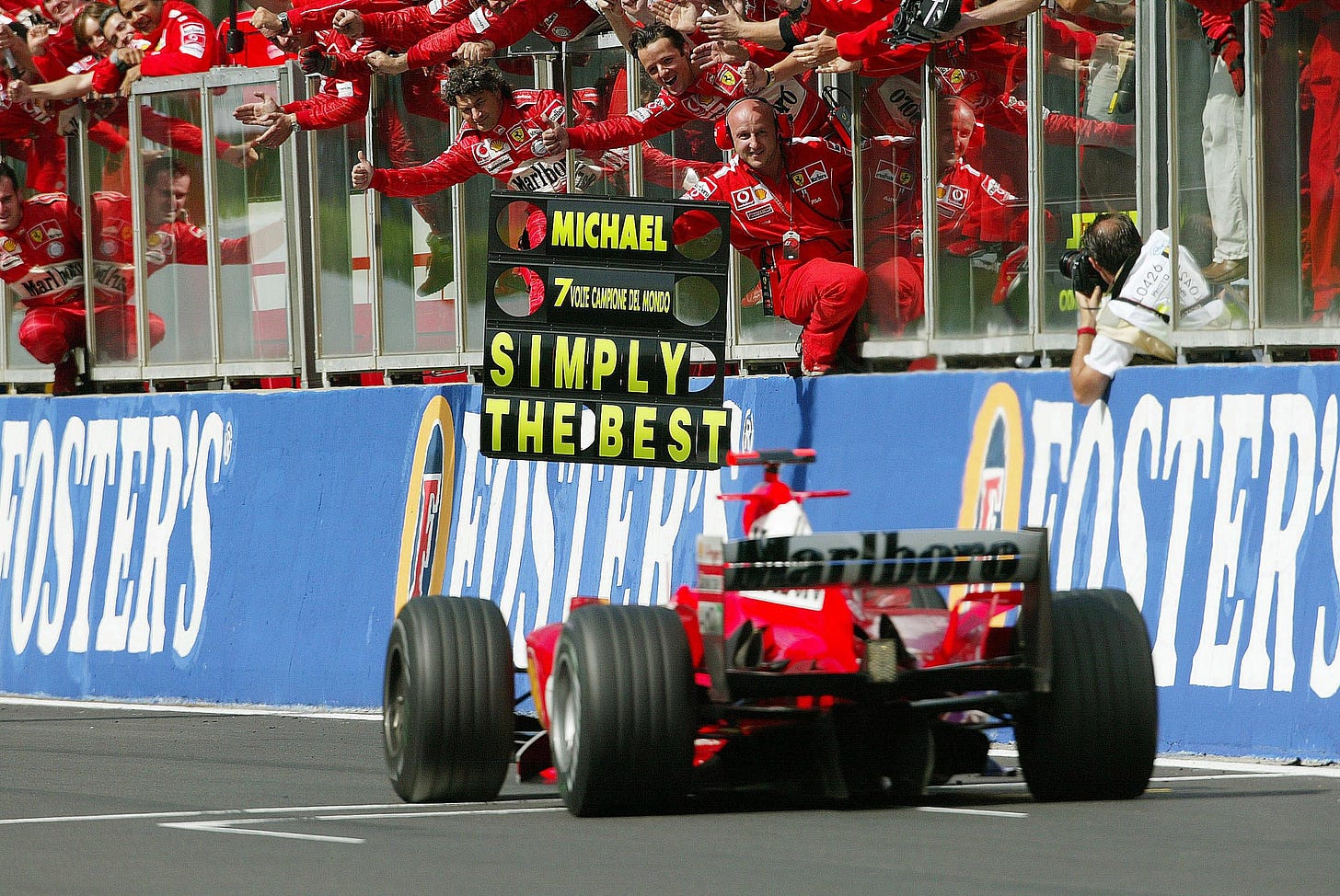
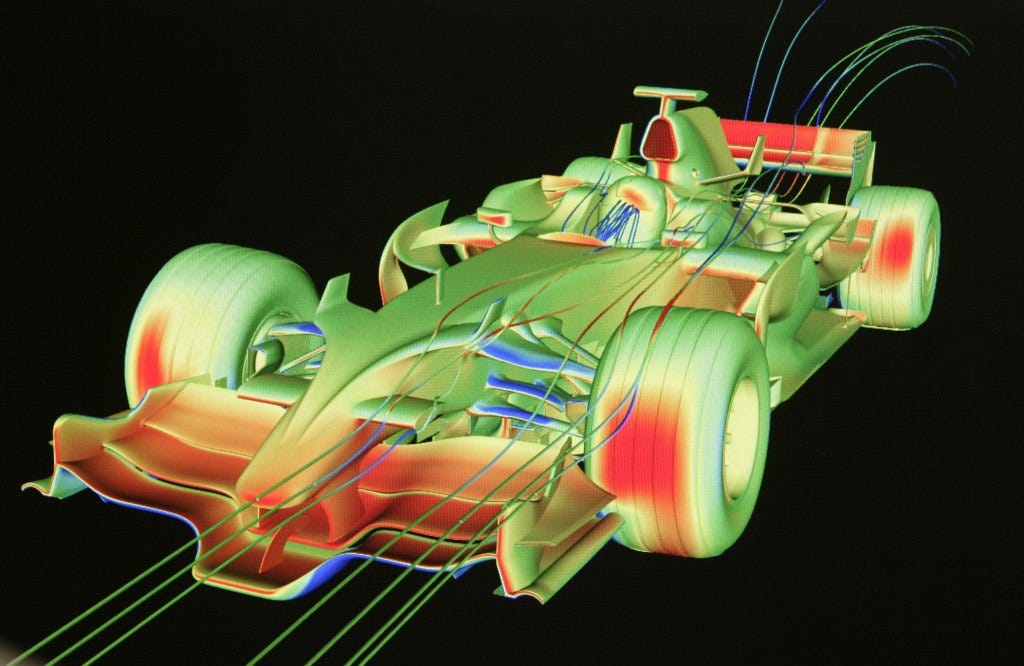
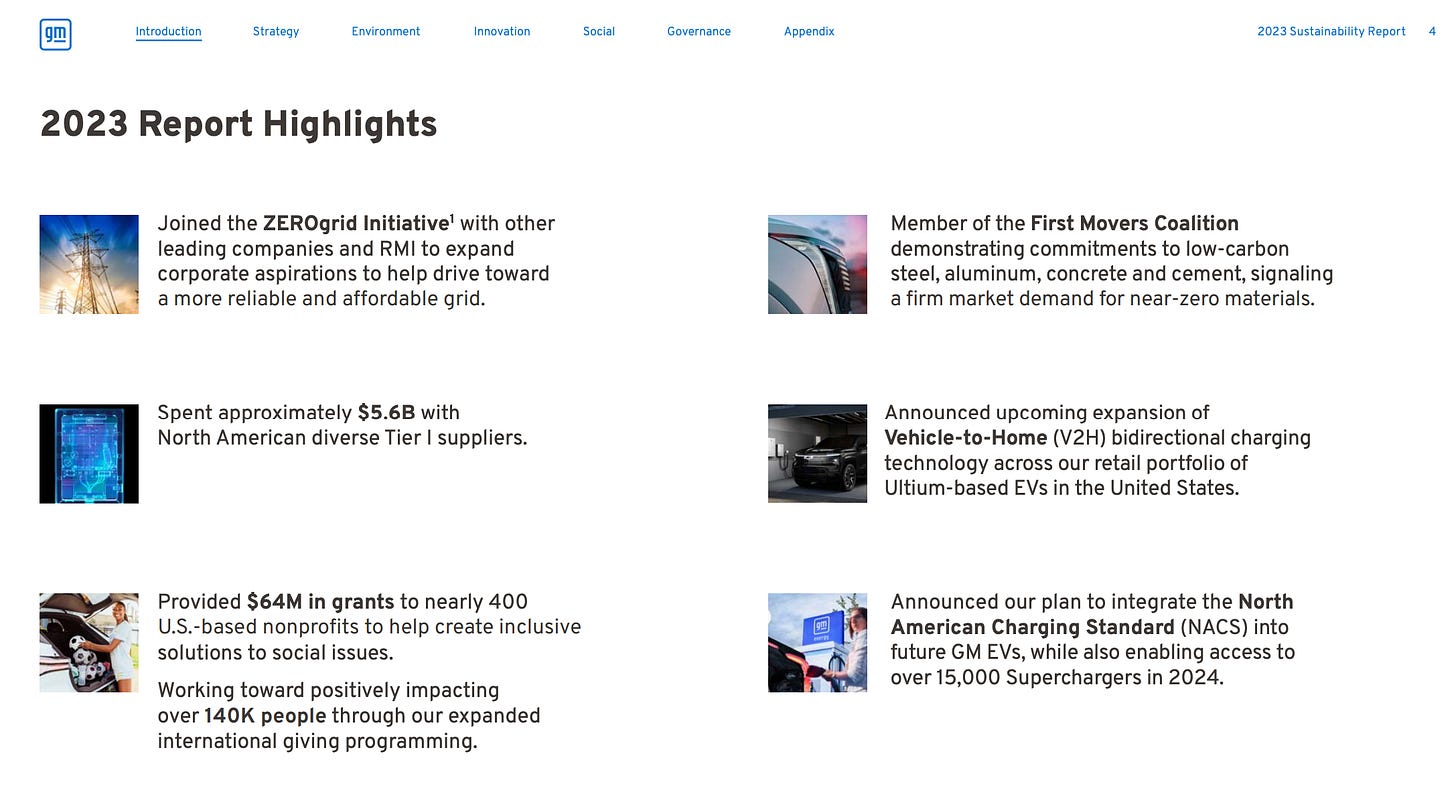
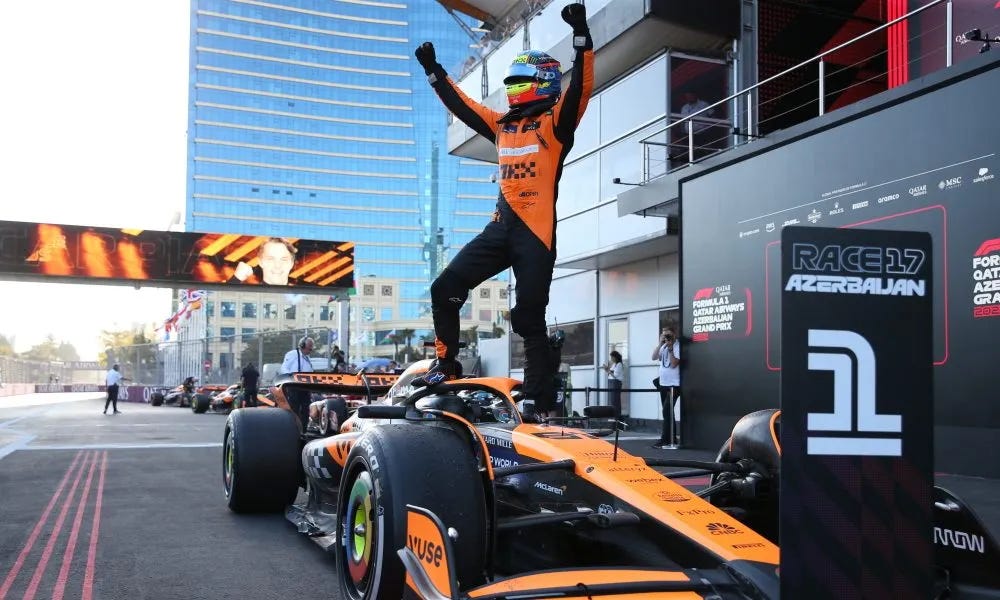
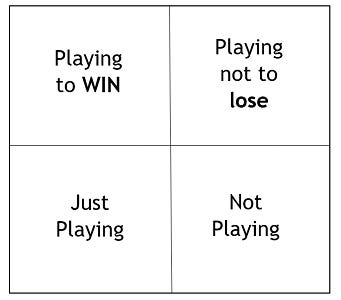
The context around that win for Piastri is pretty epic too... some bad luck for Norris in qualifying had him starting a long way back, right team culture means Norris is still happy to help Oscar where he can, Piastri gets one half-sliver of an opportunity to send it down the inside and takes it. While there is a ton of that that has to go right "in the moment", so much of what looks like good fortune is set up by hard work, on the right things, for years beforehand.
Chatted with another entrepreneur the other day, and he has an interesting thesis: The only competitive advantage, the only real moat to protect your edge, is speed. Kind of like that in the context of this f1:business post!